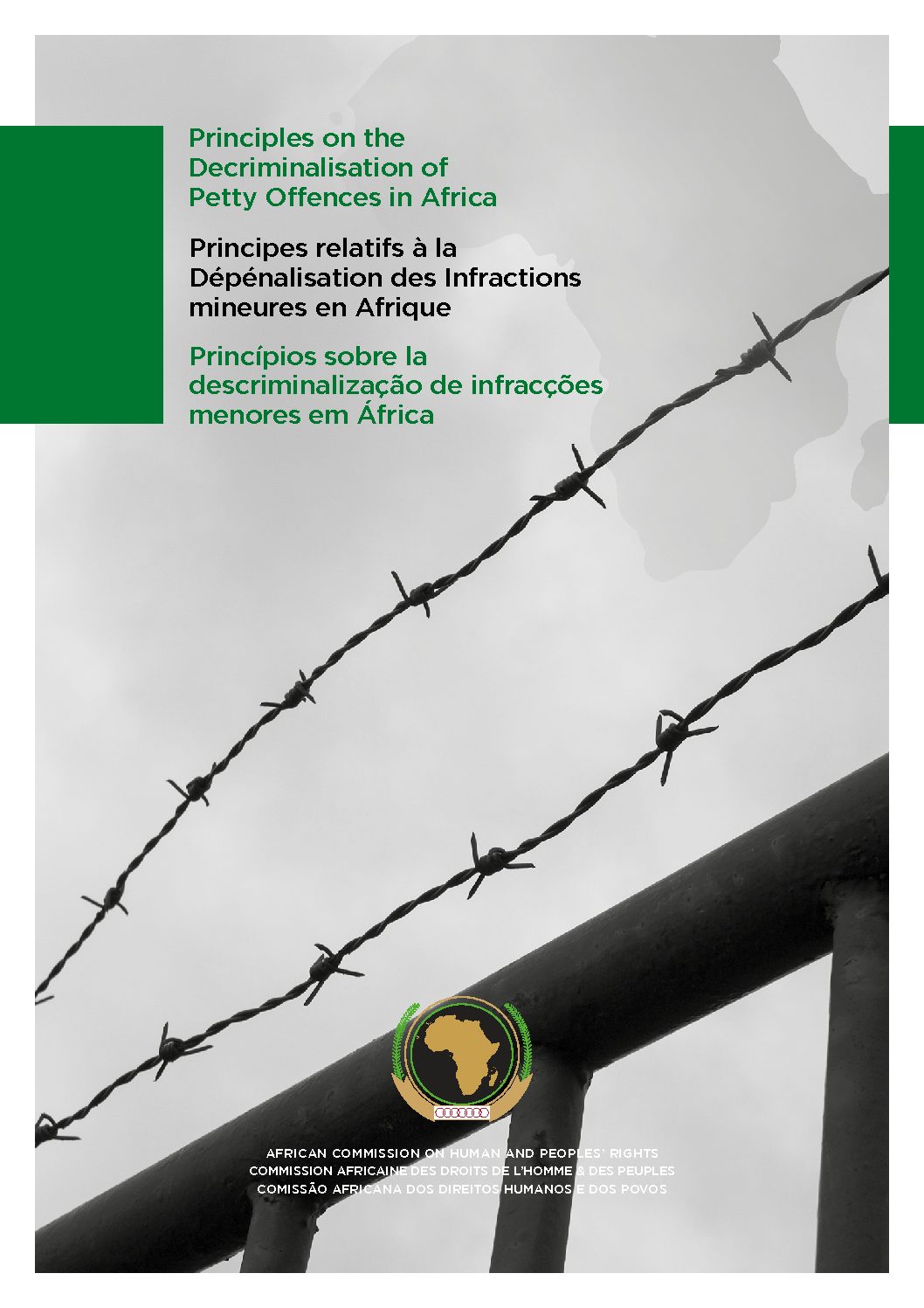The criminal justice system in many African countries is characterized by widespread criminalization and punishment of petty offenses through arbitrary arrests which provides a basis for the violation of human rights of poor, marginalized and vulnerable people. Particularly for poor and marginalized groups, the justice system can be difficult to understand and navigate due to obstacles, such as lack of financial resources and lack of awareness on how to access the justice system
It is against this that the Africa Commission on Human and Peoples Rights (ACHPR) is engaged in a campaign alongside its partners to decriminalize and declassify petty offenses in the region and instead find alternative punishment such as utilization of Community Service Orders.The campaign is engineered to change the justice system as well as find alternative ways to deal with petty offenses
The African Commission on Human and Peoples’ Rights at its 63rd ordinary session on October 25, 2018, adopted the “Principles on the Declassification and Decriminalization of Petty Offences in Africa.”
The African Commission on Human and Peoples’ Rights (ACHPR) defines petty offenses as ‘minor offenses such as being a rogue and vagabond, loitering, hawking, prostitution, failure to pay debts and disobedience to parents. The punishment is prescribed by law includes a warning, community service, a low value fine or short-term imprisonment, often for failure to pay the fine.
The purpose of the Principles on the Decriminalization of Petty Offences is to guide States on the decriminalization of petty offenses in Africa in terms of Articles 2, 3, 5 and 6 of the African Charter. The Principles establish standards against which petty offenses created by law or by-law should be assessed and promote measures that can be taken by State Parties to ensure that such laws do not target persons based on their social origin, social status or fortune by criminalizing life-sustaining activities.
.
Articles 2 and 3 of the African Charter guarantee to all persons the enjoyment of rights and freedoms recognized in the Charter without distinction of any kind such as race, ethnic group, color, sex, language, religion, political or other opinion, national and social origin, fortune, birth or other status; to equality before the law and the equal protection of the law.
Honorable Commissioner Maria Teresa Manuela Special Rapporteur on Prisons, Conditions of Detention and Policing in Africa said that the African Commission is mindful that overcrowding in prison populations across Africa pose a significant risk to the protection and promotion of human rights.
The ACHPR encourages stakeholders, including its partners and governments to use the Principles to affect law, policy and practice reforms.
The Kenyan Criminal Justice System Audit Report published in 2017 estimated that every two years, more than four million people are arrested and detained. Thirty-two percent of these arrests are converted to charges in court. However, 70 percent of these charges are related to petty offenses.
ICJ Kenya mandate is to promote reforms of legislation relating to petty offenses and to create awareness of the effects of petty offenses in Kenya.


